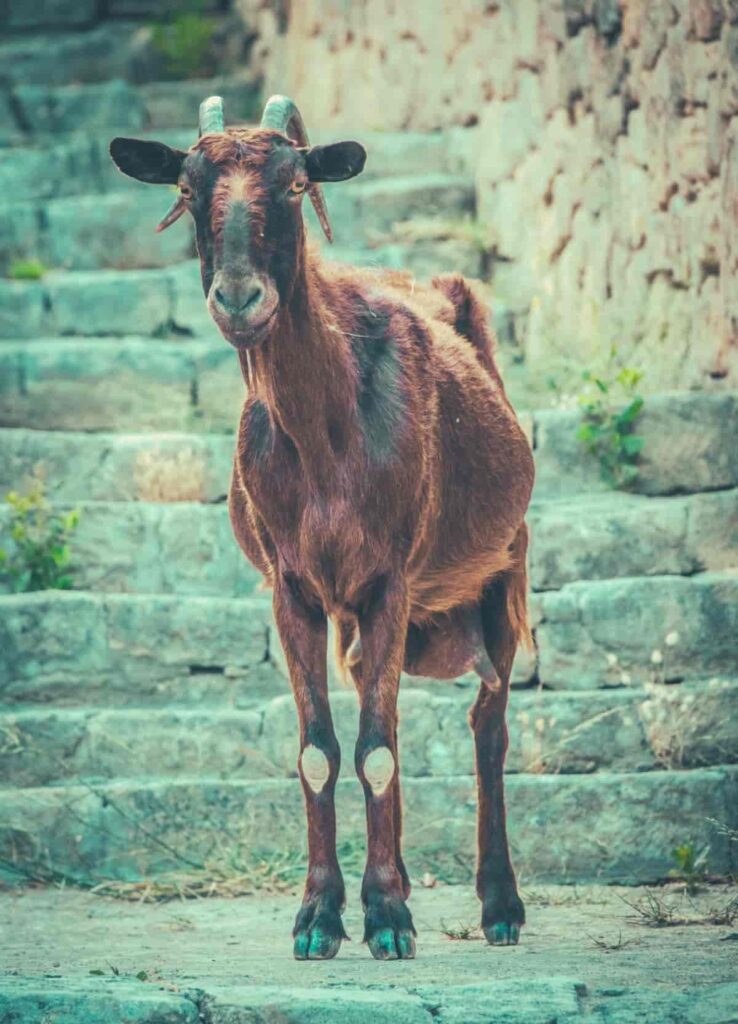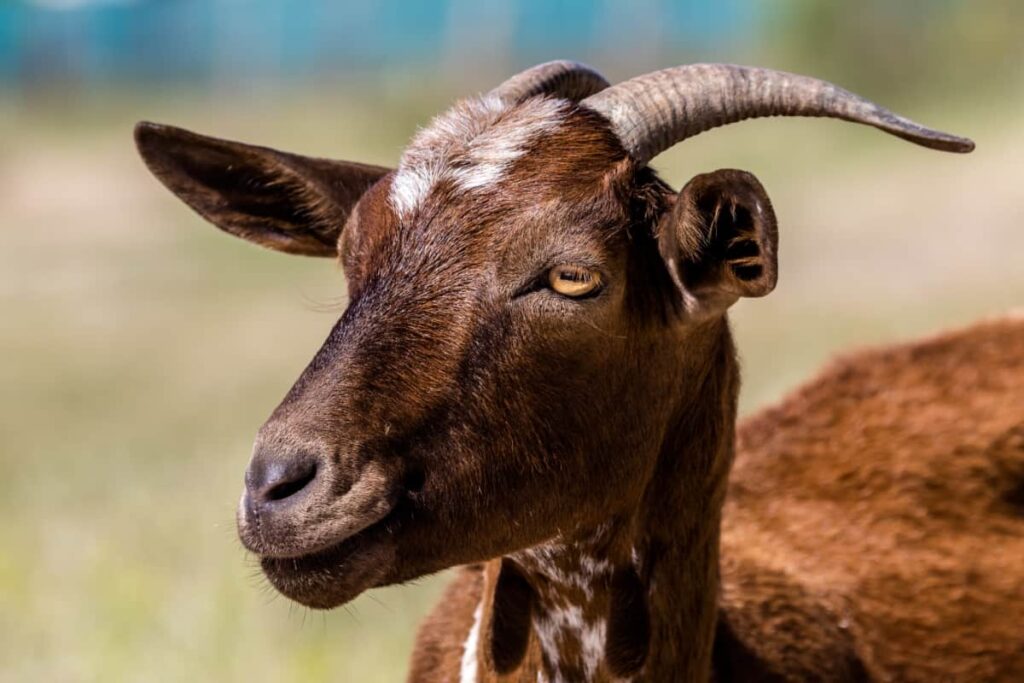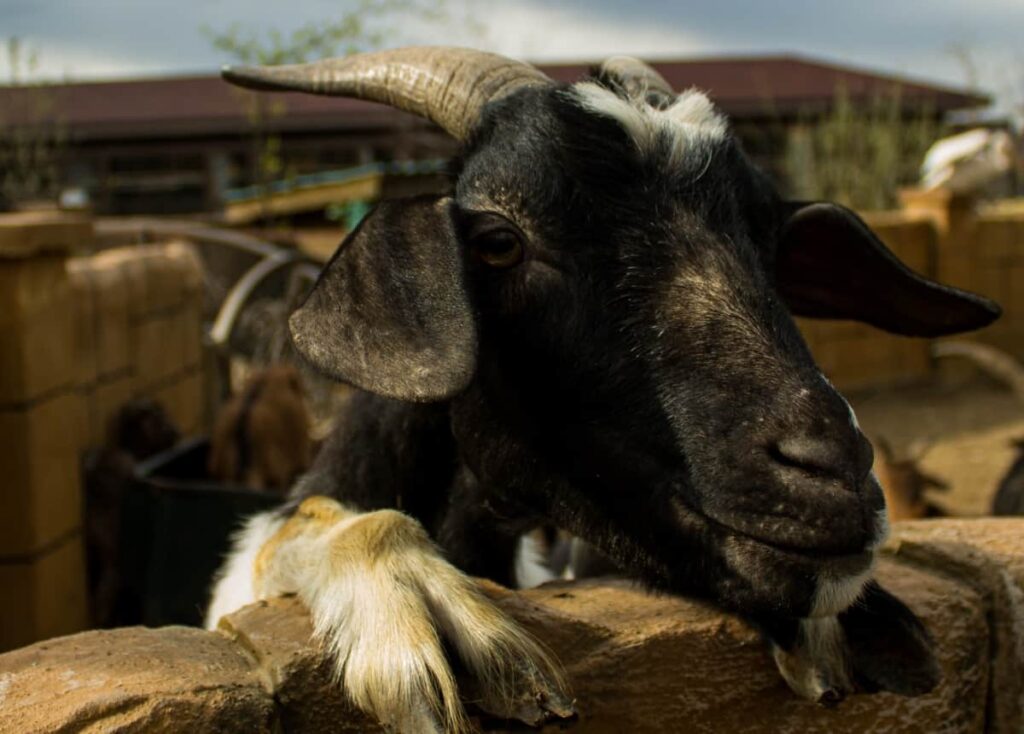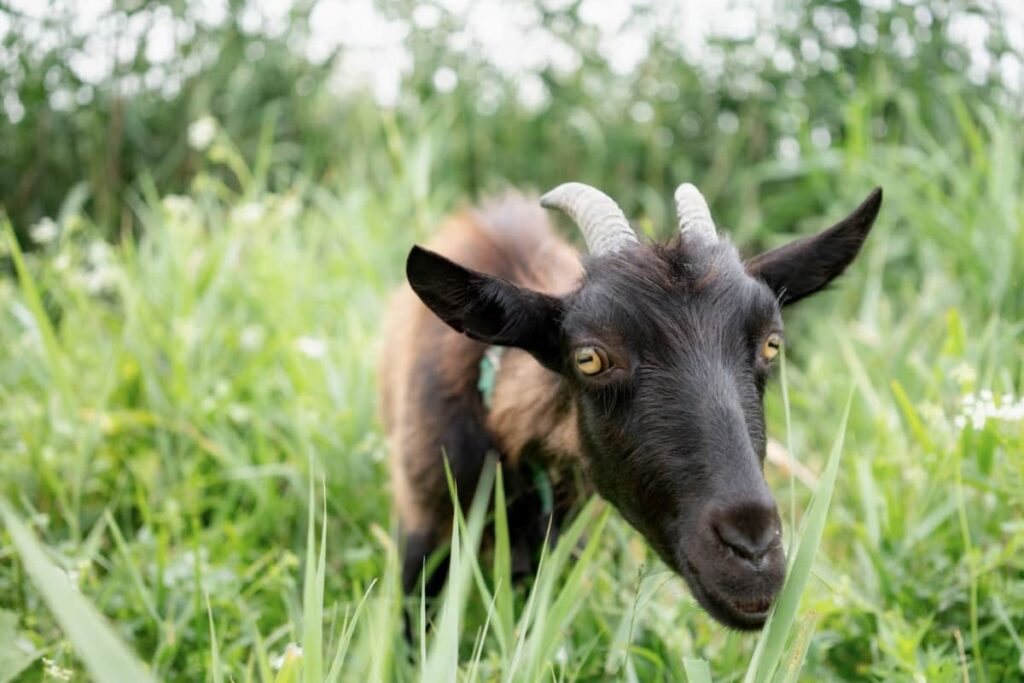Raising Payoya goats comes with a multitude of benefits for farmers and homesteaders alike. These hardy goats are known for their adaptability to various environments, making them an excellent choice for livestock farming. Their efficient milk production is a significant advantage, with each goat yielding an impressive amount of high-quality milk per lactation period.

Payoya Goat
Overview of Payoya Goat
Origin and History
The Payoya goat, a Spanish breed hailing from the Sierra de Cádiz, has a rich history deeply intertwined with the village of Villaluenga del Rosario. These goats have been cherished by the payoyos for generations, symbolizing resilience and adaptability in harsh mountainous terrains.
The Payoya goats’ unique characteristics make them a prized possession among farmers and breeders alike. Their adaptability to various environments showcases their resilience and versatility. Whether grazing in lush pastures or scaling rocky terrains, these goats thrive and flourish with grace.
Characteristics and Appearance
These goats typically weigh between 50 to 60 kg for females and 70 to 90 kg for males. Their sturdy build and medium-sized stature make them well-suited for various farming environments. One of the most notable features of the Payoya goat is their beautiful coat, which can range from white to light brown or grey with darker markings. Their long, curved horns add to their striking appearance, giving them an elegant yet robust look. Additionally, their alert eyes and agile movements showcase their agility and intelligence.
Lifespan
The lifespan of a Payoya goat is an essential aspect to consider when raising these beautiful animals. On average, Payoya goats can live for 10 to 12 years if properly cared for and provided with adequate nutrition and veterinary attention. By ensuring that they are kept in good health through regular check-ups and vaccinations, owners can maximize the lifespan of their Payoya goats. Providing goats with a well-balanced diet rich in nutrients also plays a crucial role in extending their years on the farm.
Price
The cost of a Payoya goat can vary depending on factors such as age, gender, pedigree, and overall health. Generally, younger goats are priced lower than mature breeding stock. Establishments known for high-quality breeding practices may charge more for their animals due to their superior genetics and bloodlines. Generally, a healthy and well-bred Payoya goat can range from $200 to $500 per head.
Habitat and Range
Native Regions
The Payoya goat, native to the Sierra de Cádiz region in Spain, thrives in mountainous terrain with diverse vegetation. This breed has adapted well to harsh environments, making them resilient and versatile for various habitats. Their natural range includes rocky landscapes with sparse vegetation, where they can efficiently graze on a variety of plants. The Payoya goats’ ability to adapt to rugged terrains showcases their hardy nature and survival instincts.
Adaptability to Environments
Due to their sturdy build and agile nature, these goats are well-suited for navigating steep slopes and rough terrain. Their adaptability makes them ideal for sustainable farming practices in challenging environments. Whether it’s the Rocky Mountains or lush pastures, the Payoya goat demonstrates its capability to thrive and contribute positively to the ecosystem.
In case you missed it: Ultimate Guide to Catalina Goat: Raising, Feed, and Care

Breeding and Reproduction
Breeding Practices
Breeding Payoya goats is a crucial aspect of maintaining a healthy and productive herd. Selecting the right breeding practices can help improve the overall quality of your goats. It’s essential to carefully choose breeding pairs based on genetics, health, and temperament.
Gestation and Kid Rearing
When it comes to gestation, female Payoya goats typically carry their kids for around 150 days before giving birth. During this period, providing proper nutrition and veterinary care is vital to ensure a successful pregnancy. Monitoring the pregnant does closely will help in identifying any potential issues early on.
Once the kids are born, proper kid-rearing practices become essential. Providing adequate colostrum immediately after birth, ensuring they receive enough milk from their mother or through bottle feeding if necessary, and offering a clean and safe environment are key factors in raising healthy Payoya goats.
Diet and Nutrition
Preferred Forage
When it comes to the diet and nutrition of Payoya goats, selecting the preferred forage is crucial. These goats thrive on a variety of grasses, herbs, and shrubs found in their native regions. Providing them with access to diverse vegetation ensures they receive essential nutrients. Providing a balanced mix of nutrients will help maintain their health and productivity. Supplementing their diet with minerals and vitamins can also boost milk production. Make sure to provide access to clean water at all times to keep them hydrated.
Nutritional Requirements and Supplements
Payoya goats need a balanced diet rich in vitamins, minerals, and proteins to support their overall health and productivity. Supplementing their diet with high-quality hay or alfalfa can help meet their dietary needs effectively. Additionally, offering mineral supplements tailored to the specific needs of Payoya goats can further enhance their well-being. It’s essential to consult with a veterinarian or livestock nutritionist to create a customized feeding plan that meets the unique nutritional requirements of Payoya goats.
Health and Veterinary Care
Common Health Issues
Health and veterinary care are crucial aspects of raising Payoya goats. Like any other animal, these goats can face common health issues that require attention. Some of the prevalent health concerns include parasites, hoof problems, and respiratory infections. It’s essential to monitor the goats regularly for signs of illness or discomfort.
Preventative Measures and Treatments
Preventative measures play a major role in maintaining the well-being of your herd. Implementing a good deworming schedule, proper hoof trimming, and a clean environment can help prevent many health issues from arising. Regular vaccinations are also necessary to protect against contagious diseases.
In case you missed it: Chyangra Goat: History, Origin, Characteristics, Size, Lifespan, Uses, Price for Himalayan Goat

In case your Payoya goat does fall ill, prompt treatment is vital. Consult with a veterinarian in goat care to diagnose and treat any health concerns effectively. Remember that early disease detection is key to ensuring the quick recovery of your animal friends.
Milk Production
Milk Yield and Quality
When it comes to milk production, the Payoya goat stands out for its impressive yield and quality. These goats can produce an average of 440 kilograms of milk per lactation, with some exceeding 550 liters. The rich and creamy milk is a favorite among cheese makers due to its excellent flavor profile and nutritional properties.
Uses of Payoya Goat Milk
Payoya goat milk is versatile and can be used to make various dairy products such as artisanal cheeses, yogurt, and even luxurious soaps. Its high-fat content makes it ideal for producing rich and flavorful cheeses that are highly sought after by food enthusiasts. Whether you prefer a tangy chevre or a sharp aged cheese, Payoya goat milk provides the perfect base for creating exceptional dairy products. With its unique taste and nutritional benefits, this milk adds a touch of luxury to any culinary creation.
Cheese and Dairy Products
Traditional Cheese Making
Payoya goats’ milk is highly valued for its quality and richness, making it ideal for traditional cheese making. The creamy texture and distinct flavor of the cheese produced from Payoya goat milk are truly exceptional.
Other Dairy Products from Payoya Milk
Payoya goat milk is also used in various other goat dairy products such as yogurt, ice cream, and even soap. These products benefit from the natural goodness of the milk and offer a unique taste that sets them apart from others on the market. Traditional cheese-making with Payoya goat milk involves a meticulous process that has been passed through generations. The result is a delectable cheese that showcases the purity and authenticity of this special breed’s milk.
In case you missed it: Boer Goat Feed Management: Understanding Feeding Requirements, Program, Schedule, and Rations

Conclusion
Raising Payoya goats can be a profitable venture for farmers looking to diversify their livestock operations. Payoya goats are valued for their role in sustainable farming practices. By raising these goats, farmers can contribute to preserving traditional breeds and promoting genetic diversity within the goat population.
Note: The images presented in this post are intended solely for representation purposes. The images are meant to serve as visual aids and should not be relied upon as accurate representations of their real-life counterparts.
- Types of Grass Growing for Goat Farm
- How to Train Goats for Milking: A Beginners Guide
- Goat Milking Practices and Equipment: A Beginner’s Guide
- Goat Farming for Fiber: Producing Mohair and Cashmere
- Maximizing Goat Milk Production: Tips for Dairy Goat Farmers
- Goat Farming as a Family Business: Strategies for Success
- Profitable Kenya Goat Breeds for Commercial Dairy and Meat Business
- Unlock the Secrets of Oberhasli Goat: Discover Raising and Management Practices
- Ultimate Guide to Myotonic Goats: Explore Profile to Raising